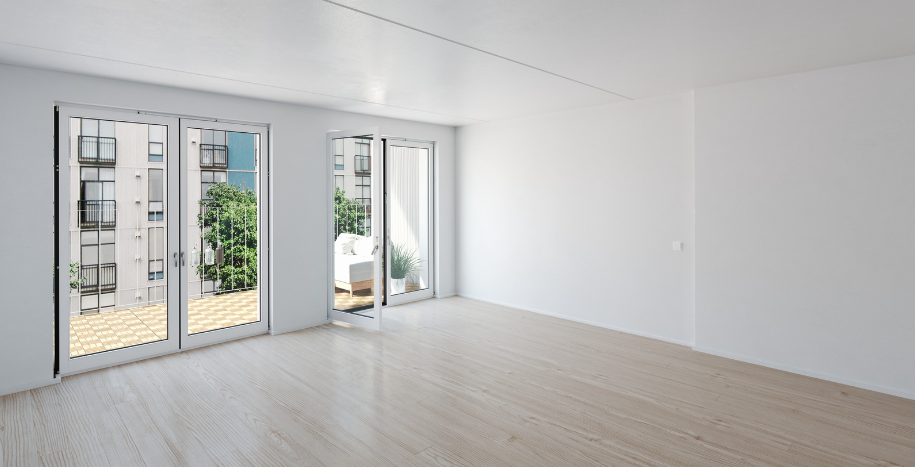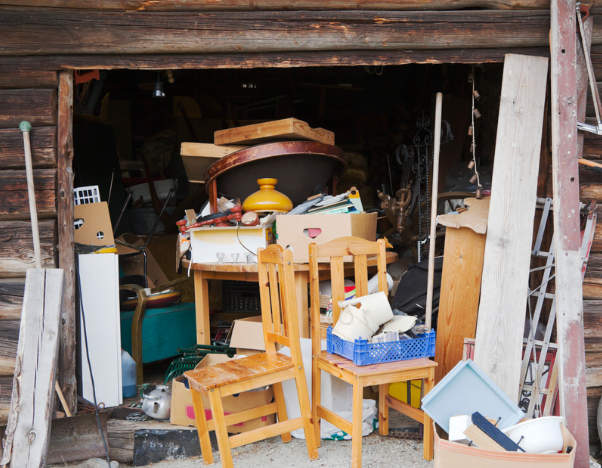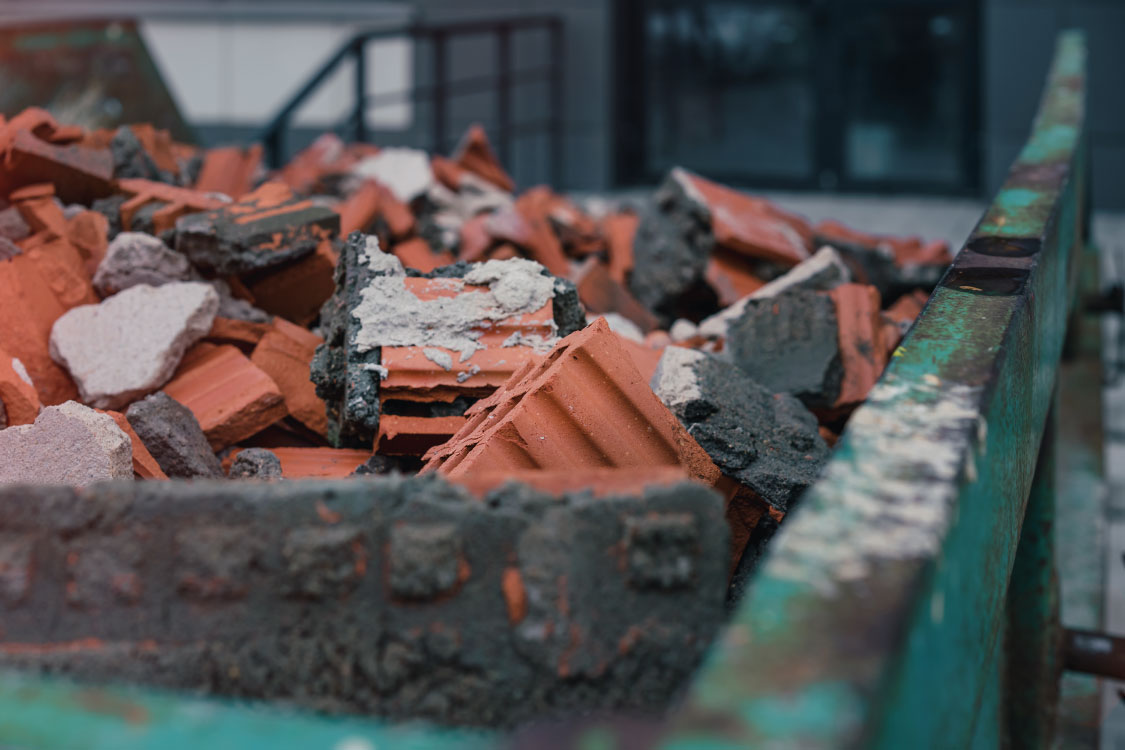Clear Your Mind: Mental health benefits of decluttering

In the hustle and bustle of our daily lives, the state of our living spaces can reflect the tumult within our minds. The stacks of papers, miscellaneous items, and clutter that accumulate around us can contribute to feelings of stress, overwhelm, and a lack of control. A simple remedy exists – decluttering! The act of decluttering holds mental health benefits that extend far beyond organised shelves and tidy spaces.
From enhancing focus and reducing stress to fostering a sense of accomplishment and improving overall well-being, a clutter-free environment is a great way to nurture our mental health.
Take a look at how decluttering can clear not only our physical spaces but also our minds.
Overview
Why is decluttering so good for our mental health?
How to clean and declutter your house fast: a how-to guide
How to get rid of unwanted household items
Why is decluttering so good for our mental health?
From enhancing focus and reducing stress to fostering a sense of accomplishment and improving overall well-being, a clutter-free environment has more impacts than you might expect.
Decluttering has seen a surge of interest globally due to the popularity of a minimalist aesthetic and people like Marie Kondo shot to fame simply by helping people learn the art of decluttering!
Clutter in your living space can provide insight into various aspects of your mental health. By decluttering your space, you create a more calming environment that can improve your overall mood.
Without clutter, focus improves, stress lowers, and energy increases. A calming environment, free of clutter is especially important for young children who are still learning to regulate their emotions, added stress due to busy and chaotic living environments can lead to overstimulation and impact behaviour.
People describe decluttering as being cathartic meaning: providing psychological relief through the open expression of strong emotions and we tend to agree! Letting go of old, unused items, especially items with negative memories attached can free up a lot of space in your mind as well as in your home. Research finds that people see decluttering as an expression of self-care rather than a ‘job’ or ‘chore’.
When you go through the process of decluttering, you feel a sense of freedom and liberation. It reclaims a sense of mastery and control and leaves you feeling more competent and efficient.
Keeping a space decluttered is merely a matter of maintenance. If you are struggling to get on top of your clutter, consider bringing in some help to get the job done. This should be a joint task expected of everyone who lives in your home. Ask family members, and friends to lend a hand, there are even people who declutter professionally! Once you get started you won’t want to stop!
How to clean and declutter your house fast: a how-to guide
One room at a time
Slow and steady gets the job done, make this your mantra: don’t double-handle anything! Pick one room, start and finish it. Flitting from room to room is a sure-fire way to overwhelm.
Decluttering your home won’t happen overnight, carve out some time to make solid progress, one room at a time.
What if I can’t let go? Decluttering tips and tricks
There are a few tricks to being able to successfully declutter. When struggling to make decluttering decisions, the 20/20 rule says you should consider letting go of an item if: You can replace it for less than $20. And you can replace it in less than 20 minutes.
If that doesn’t work, ask yourself if it sparks joy. Marie Kondo has become a cultural phenomenon in the movement to declutter and minimise in our homes. Her famous question – Does it spark joy? Can be used on just about anything you are having a hard time throwing out. Chances are the answer is no, let it go.
Another good way to make progress with your wardrobe in particular, is by asking yourself whether you have worn the item in question within the last year? If you haven’t worn the item within the last year, it means it has seen every season through without a wear. Chances are you won’t wear it again – admit this to yourself and pass it on.
Maintain it
Once you have decluttered your home the idea is to maintain it so that your effort does not go to waste. Keep a box or bag at the ready, for example, in the garage or laundry which you can add items that are no longer wanted. When full, put it straight into the boot of your car to avoid it making its way back into your home!
You will come to realise you won’t miss these items – ‘out of sight out of mind’ has never had a truer meaning! Implement a regular clean-out schedule – perhaps at the start of every season.
There is a zero waste movement taking hold which involves reducing how much you consume and throw away. Reducing waste going to landfill by reducing unnecessary purchases, reusing things as much as you can, and recycling and composting as much as you can.
How to get rid of unwanted household items?
Scan documents and paperwork
Paperwork and documents can add a huge burden on storage in your home, storing what you can virtually is a great way to minimise and save on space.
No scanner? No worries, download the Adobe Scan Mobile App and you’ll have a scanner in your back pocket – it’s as good as the real thing.
Start scanning all of that paperwork you have had for years, even some of the kids drawings that are adding to the bulk! There are tonnes of waste management tips, here are a few below:
Toy/book/clothes swaps
Host a toy/book/clothes swap – one man’s trash is another man’s treasure! Everything unclaimed, but still in good nick, at the end of the day can go straight to the op shop!
The op-shop drop
Get to know your local op-shop, they take donated items for free, there are some exceptions such as some electronics or anything that has had too much wear and tear – donate within reason!
Get a Skip
For everything else – get a skip! Make decluttering easy by having a skip on-site. Unsurprisingly, there will be a lot of rubbish and waste in the process of decluttering your home. A skip is an effective, low-cost way to throw things out.
Make a big push and spend a weekend at it. Consider making it a working bee and offer your friends your time if they can help you out. It is a job that is usually on most people’s to-do lists!
Hiring a skip bin at Just Skip is quick and easy. All you need to do is make a booking online, fill your skip bin up with rubbish, and let us know when to collect it when you are done.
This saves you the hassle of transporting your rubbish and additionally makes it a great option for those without a car or those who have a lot to get rid of!
Get the job done with Just Skips
Having a neat, well-organised home plays an important role in mental health and general well-being, “Tidy house, tidy mind,” is a phrase we all know well.
Hiring a skip bin is the most efficient way to get rid of all your unwanted waste. However, please remember to make sure that you are putting the appropriate waste in our bins. Identifying your waste type is an important part of the waste removal process so please don’t hesitate to contact us if you have any questions regarding how to pack your skip.
Check out our latest blogs about what size skip bin do I need? and how much are skip bins to hire?
Frequently Asked Questions
What happens to your brain when you declutter?
Decluttering can have several positive effects on the brain and mental well-being. Without clutter, focus improves, stress lowers, and energy increases. Keeping a space decluttered is merely a matter of maintenance. Consistently maintaining a clutter-free environment through regular cleaning and organisation is a form of self-care that can contribute to long-term mental well-being.
What does clutter say about your mental health?
Clutter in your living space can provide insights into various aspects of your mental health. Approach these connections with sensitivity and recognise that each person’s relationship with clutter is unique. For example, those with attention-related disorders, such as ADHD, may struggle to maintain an organised space due to difficulties in sustaining attention and focusing on cleaning tasks. A cluttered space may reflect the emotional and physical fatigue associated with depression. Clutter may simply indicate feelings of overwhelm or high stress levels.
Is clutter a form of depression?
Clutter itself is not a direct form of depression, but there can be a relationship between clutter and mental health. For some individuals, living in a cluttered environment may contribute to feelings of stress, anxiety, and overwhelm, which can be associated with or exacerbate symptoms of depression. Decluttering and organising one’s environment can have positive effects on mental well-being.
People also read:
How To Clean Out A Shed – A Guide



